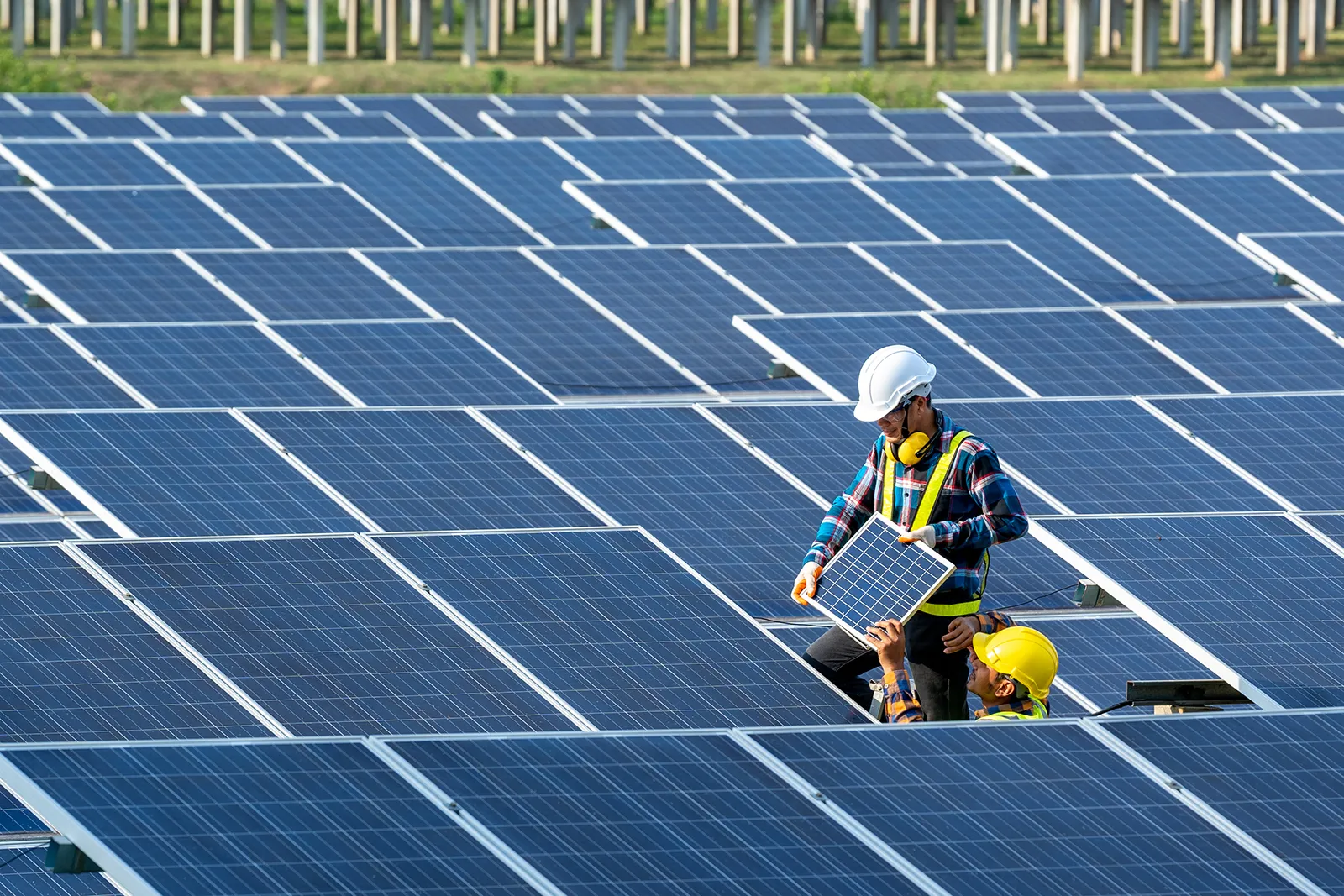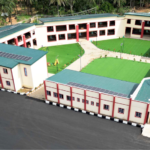- Home
- Features
- Startup Zone
- Projects
- Policies
- Shop
- Policies
- Projects
- Startup Zone
- Country Spotlight
- Analysis
- Tech
- Policies
- Projects
- Startup Zone
- Country Spotlight
- Analysis
- More
- Beyond the Kalashnikov: Africa’s Shift Toward Technology-Driven Warfare
- Afrail Express: Uniting a Continent on Rails
- AFRICA’S ENERGY CORRIDORS: CONNECTING POWER, PEOPLE, AND PROSPERITY
- Startup Lions Campus: Empowering Kenya’s Digital Generation
- L’Art de Vivre’s Le Paradis de Mahdia: Tunisia’s Model for Sustainable Luxury
- The Lobito Corridor: Rewiring Africa’s Trade Arteries Through Strategic Infrastructure
- AFRICA’S GREEN ENERGY TRANSITION: A BEACON OF HOPE FOR CLIMATE ACTION
- Dangote Refinery: Showcasing Africa’s Project Success Story
- AFRICA GREEN ECONOMY: ALL YOU NEED TO KNOW
- The Most Important Amicus Brief in the History of the World
- The Rise of Indigenous UAVs: Africa’s Drone Capabilities in Warfare and Surveillance
- AFRICA’S LARGEST OIL PRODUCERS: A COMPREHENSIVE OVERVIEW
- Beyond the Kalashnikov: Africa’s Shift Toward Technology-Driven Warfare
- Afrail Express: Uniting a Continent on Rails
- AFRICA’S ENERGY CORRIDORS: CONNECTING POWER, PEOPLE, AND PROSPERITY
- Startup Lions Campus: Empowering Kenya’s Digital Generation
- L’Art de Vivre’s Le Paradis de Mahdia: Tunisia’s Model for Sustainable Luxury
- The Lobito Corridor: Rewiring Africa’s Trade Arteries Through Strategic Infrastructure
- AFRICA’S GREEN ENERGY TRANSITION: A BEACON OF HOPE FOR CLIMATE ACTION
- Dangote Refinery: Showcasing Africa’s Project Success Story
- AFRICA GREEN ECONOMY: ALL YOU NEED TO KNOW
- The Most Important Amicus Brief in the History of the World
- The Rise of Indigenous UAVs: Africa’s Drone Capabilities in Warfare and Surveillance
- AFRICA’S LARGEST OIL PRODUCERS: A COMPREHENSIVE OVERVIEW
- Beyond the Kalashnikov: Africa’s Shift Toward Technology-Driven Warfare
- Afrail Express: Uniting a Continent on Rails
- AFRICA’S ENERGY CORRIDORS: CONNECTING POWER, PEOPLE, AND PROSPERITY
- Startup Lions Campus: Empowering Kenya’s Digital Generation
- L’Art de Vivre’s Le Paradis de Mahdia: Tunisia’s Model for Sustainable Luxury
- The Lobito Corridor: Rewiring Africa’s Trade Arteries Through Strategic Infrastructure
- Startup Zone
Top Insights
AFRICA’S SOLAR REVOLUTION: HARNESSING THE POWER OF THE SUN TO MEET ENERGY NEEDS
Africa's solar revolution is underway, with countries across the continent harnessing the power of the sun to meet their energy needs.

Africa is rising to meet its energy needs through a revolutionary approach, The continent is harnessing the power of the sun. With an abundance of sunlight and a growing demand for energy, solar power is becoming an increasingly important part of the continent’s energy mix. The African continent is endowed with vast solar resources, making it an ideal location for solar energy generation. In fact, Africa receives more sunlight than any other continent, with some areas receiving as much as 4,000 kilowatt-hours (kWh) of solar radiation per square meter per year.

THE ENERGY CHALLENGE IN AFRICA
Africa is home to over 1.3 billion people, with a population projected to reach 2.5 billion by 2050. However, despite this growing population, many Africans still lack access to reliable and affordable energy. According to the International Energy Agency (IEA), over 600 million people in Africa live without electricity, and many more rely on expensive and polluting fossil fuels for their energy needs. This energy deficit has significant implications for economic development, poverty reduction, and environmental sustainability. The lack of access to energy hinders economic growth, limits opportunities for education and healthcare, and exacerbates poverty.
THE SOLAR SOLUTION
Solar power offers a clean, renewable, and abundant source of energy that can help meet Africa’s growing energy demands. With the cost of solar technology decreasing dramatically in recent years, solar energy is becoming increasingly competitive with fossil fuels. This has led to a surge in solar adoption across Africa, with countries such as South Africa, Egypt, and Morocco leading the way. Solar energy can be generated locally, reducing reliance on imported fuels and enhancing energy security. Additionally, solar energy can provide energy access to remote and off-grid communities, promoting economic development and reducing poverty.
SOLAR SUCCESS STORIES IN AFRICA
Several African countries are already experiencing success with solar energy. South Africa, for example, has been a leader in solar energy adoption, with over 2,000 megawatts (MW) of solar capacity installed to date. The country’s Renewable Energy Independent Power Producer Procurement (REIPPP) program has been instrumental in driving solar growth. Egypt has also made significant strides in solar energy adoption, with over 1,000 MW of solar capacity installed and plans to generate 20% of its electricity from solar power by 2022. Morocco has also invested heavily in solar energy, with the Noor-Ouarzazate solar complex being one of the largest in the world.
SOLAR INNOVATIONS IN AFRICA
Africa is also home to several solar innovations that are helping to increase energy access and reduce costs. Pay-as-you-go solar solutions, for example, are allowing customers to pay for solar energy in small increments, making it more affordable and accessible. Solar mini-grids are also being used to electrify rural areas and provide energy access to communities that were previously off the grid. Additionally, solar-powered water pumping systems are being used to irrigate crops and provide clean water to communities, reducing reliance on fossil fuels and enhancing food security.
IMPACT OF SOLAR SOLUTION ON AFRICA
The impact of solar solutions on the African continent has been significant, with various benefits and improvements in different areas. One of the most notable impacts has been the creation of jobs in the solar industry. From manufacturing and installation to maintenance and repair, thousands of jobs have been created, providing employment opportunities for Africans and contributing to economic growth.
The economic impact of solar solutions in Africa extends beyond job creation. Solar energy has also reduced energy costs for households, businesses, and industries, freeing up resources for other economic activities. With access to reliable and affordable energy, businesses and industries can operate more efficiently, leading to increased productivity and economic growth. Additionally, solar energy has reduced the pressure on Africa’s natural resources, such as wood fuel, which has helped to conserve forests and biodiversity.
The environmental impact of solar solutions in Africa has also been significant. Solar energy is a clean and renewable source of energy, reducing Africa’s reliance on fossil fuels and lowering greenhouse gas emissions. By reducing the use of fossil fuels, solar energy has improved air quality in many African cities, reducing the negative impacts on human health. Furthermore, solar energy has helped to conserve natural resources, reducing the pressure on forests and biodiversity.
The social impact of solar solutions in Africa has been profound. Solar energy has increased energy access for millions of Africans, particularly in rural and off-grid areas, improving their quality of life and economic opportunities. With access to reliable energy, healthcare facilities can operate more effectively, improving healthcare outcomes and saving lives. Additionally, solar-powered schools and educational facilities have improved access to education, particularly in rural areas, and enhanced the learning experience for students.
The development of solar solutions in Africa has also driven infrastructure development. Solar energy has driven the expansion of grid infrastructure in many African countries, increasing access to energy and improving the overall efficiency of the grid. Off-grid solutions have been developed to provide energy access to remote and rural areas, where grid expansion is not feasible. Mini-grids have also been developed to provide energy access to small communities and villages, improving energy access and economic opportunities.
Despite the many benefits of solar solutions in Africa, challenges remain. Financing is a significant challenge, limiting the adoption of solar solutions. The development of supportive policies and regulations is critical to driving the adoption of solar energy in Africa. Additionally, the development of new technologies and innovative solutions is critical to reducing the cost of solar energy and improving its efficiency.
CHALLENGES AND OPPORTUNITIES
Despite the many successes in solar energy adoption in Africa, there are still several challenges that need to be addressed. Financing, for example, remains a significant barrier to solar energy adoption, with many African countries struggling to access the funding needed to develop and deploy solar energy projects. Infrastructure is also a challenge, with many African countries lacking the grid infrastructure needed to support widespread solar energy adoption. Policy and regulation are also evolving, with many African countries still developing the policies and regulations needed to support solar energy adoption.
However, these challenges also present opportunities for innovation and growth. Green bonds, for example, are being used to finance solar energy projects in Africa, providing a new source of funding for renewable energy projects. Public-private partnerships are also being used to develop and finance solar energy projects, bringing together governments, private companies, and investors to support solar energy adoption. Regional cooperation is also increasing, with countries such as South Africa, Egypt, and Morocco working together to share knowledge, expertise, and resources to support solar energy adoption.
CONCLUSION
Africa’s solar revolution is underway, with countries across the continent harnessing the power of the sun to meet their energy needs. While there are still challenges to be addressed, the opportunities for solar energy adoption in Africa are vast. With the right policies, financing, and infrastructure in place, solar energy can help power Africa’s economic growth, reduce poverty, and promote sustainable development. As the continent continues to evolve, it is clear that solar energy will play an increasingly important role in shaping Africa’s energy future.
Recent Posts
Related Articles
Cutting-Edge Environmental Conservation Projects and Their Champions
Environmental conservation has entered a decisive era. As climate change accelerates, biodiversity...
ByafricaprojectJanuary 28, 2026Clean Water Access Projects Improving Lives in Underserved Regions
Access to clean and reliable water remains one of Africa’s most pressing...
ByafricaprojectJanuary 19, 2026Industrial Corridors Attracting Global Investors
Across Africa, industrial corridors are emerging as strategic economic arteries driving industrialization,...
ByafricaprojectJanuary 16, 2026The Engineers Behind Africa’s Tallest and Most Iconic Towers
Across Africa, the rise of tall and iconic towers is reshaping skylines...
ByafricaprojectJanuary 15, 2026












